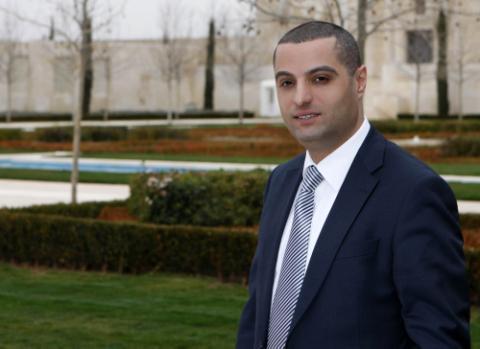Khalid Dalal – Countries in the southern hemisphere are right when they argue that the post-industrialized countries of the North should take the responsibility for the CO2 emissions that are endangering the planet and all species of life on it.
Major culprits include the US, China, the EU, Russia, India, Japan, Canada, Brazil, South Korea, Indonesia and Iran.
Amidst the non-ending debate regarding climate, the approach taken by the UAE and Egypt is the wisest. The latter is slated to host the UN Climate Change Conference 2022, better known as Cop27, in November, while the UAE will host next year’s global meeting.
The two countries met last month to coordinate the shared task. Following a meeting with Egyptian Foreign Minister Sameh Shoukry, UAE Minister of Industry and Advanced Technology and Special Envoy for Climate Change Sultan Al Jaber said “we had a positive discussion on common priorities and cooperation toward a successful Cop27 in Sharm El Sheikh”.
Despite the fact that the UAE and Egypt are not major contributors to the harmful emissions, both have taken a progressive stand based on the fact that climate change is a reality, a danger, and a formidable challenge for all.
Cooperation, common interest, and the fact that each state has its points of strength, should make Arab countries, maybe through a strategy drawn up and overseen by the Arab League, join ranks with the UAE and Egypt to first help address the global challenge of CO2 emissions and then work out solutions at the pan-Arab level to rise up to climate threats, especially the food and water security challenges, and change the game to their benefit.
Within this context, the UAE has donated around $1 billion to 40 countries among the most vulnerable to climate change to carry out projects toward easing its impact. The UAE has also dedicated over $17 billion in clean energy investments around the world.
Jaber has recently warned that climate change is a threat to world peace, and the one and only approach to that is cooperation. Knowing this, Abu Dhabi partnered with Washington in launching a joint initiative “to drive rapid and transformative climate action in the agriculture sector”, which aims to “boost investment in science and innovation to ensure the sector contributes to solving the climate crisis”, according to The National, a daily published in Abu Dhabi.
Mobilizing more than $4 billion for projects, the Agriculture Innovation Mission for Climate has attracted more than 30 countries to join the unprecedented campaign. The concept and its application in the UAE offer a true example of how challenges are turned into opportunities.
The UAE has set an example for countries challenged with climate change, food security, and water scarcity to plan for remedies and apply solutions that might tip the scales in favor of their peoples and future generations.
Cooperation, common interest, and the fact that each state has its points of strength, should make Arab countries, maybe through a strategy drawn up and overseen by the Arab League, join ranks with the UAE and Egypt to first help address the global challenge of CO2 emissions and then work out solutions at the pan-Arab level to rise up to climate threats, especially the food and water security challenges, and change the game to their benefit.
The writer is a former advisor at the Royal Hashemite Court, a former director of media and communication at the Office of His Majesty King Abdullah, and works currently as a senior advisor for business development at Al-Ghad and Jordan News.

